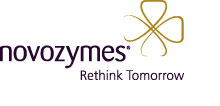Novozymes has signed an agreement with a world leader in the sugarcane ethanol market to work on cellulosic ethanol production in Brazil.
 The agreement between Dedini and Novozymes is based on developing the commercial potential of cellulosic ethanol in Brazil due to the large availability of bagasse. Brazil is the world’s largest producer of sugarcane, crushing more than 600 million tons per year, from which 27 billion liters (7.1 billion gallons) of ethanol is currently produced.
The agreement between Dedini and Novozymes is based on developing the commercial potential of cellulosic ethanol in Brazil due to the large availability of bagasse. Brazil is the world’s largest producer of sugarcane, crushing more than 600 million tons per year, from which 27 billion liters (7.1 billion gallons) of ethanol is currently produced.
“Considering the demand for ethanol in Brazil and the amount of bagasse available, there is considerable opportunity for further growth in this market. The partnership with Dedini, the largest engineering player in the sugarcane industry in Brazil, will help us to unlock this potential,” says Novozymes CEO Steen Riisgaard.
Novozymes recently introduced the first commercially viable enzymes for production of cellulosic ethanol that have the ability to break down agricultural waste such as corn stover, wheat straw, wood chips and bagasse, enabling fermentation to ethanol. Dedini, which supplies equipment and complete plants for the sugar-ethanol market, has developed a chemical process with diluted acid and a lignin solvent.
The objective of this partnership is to develop a process using the enzymatic hydrolysis route from sugarcane residues. This would result in the implementation of a demonstration plant, integrated into sugarcane mill refineries.

